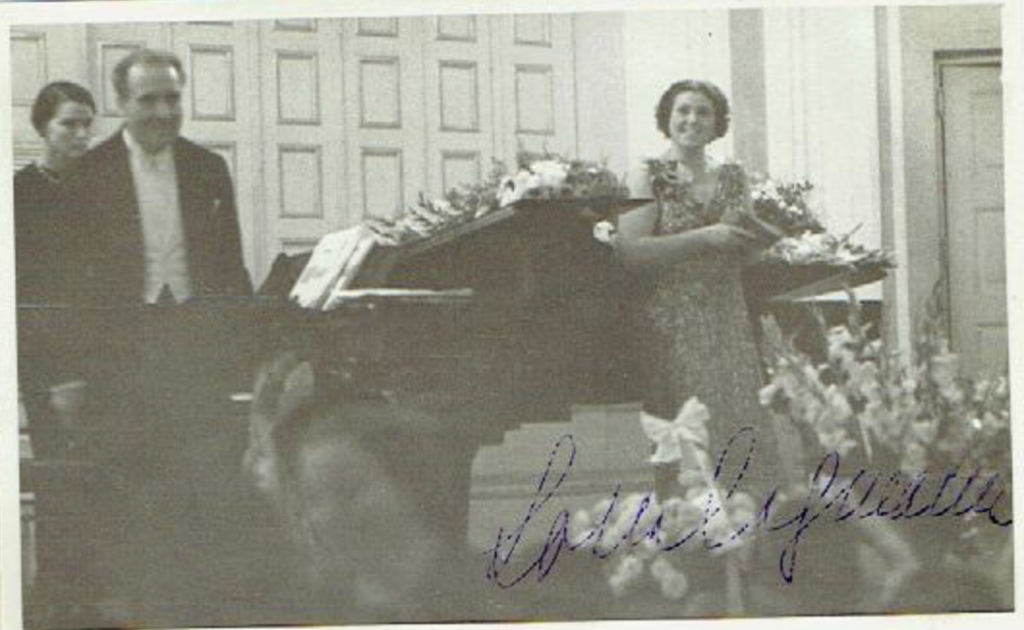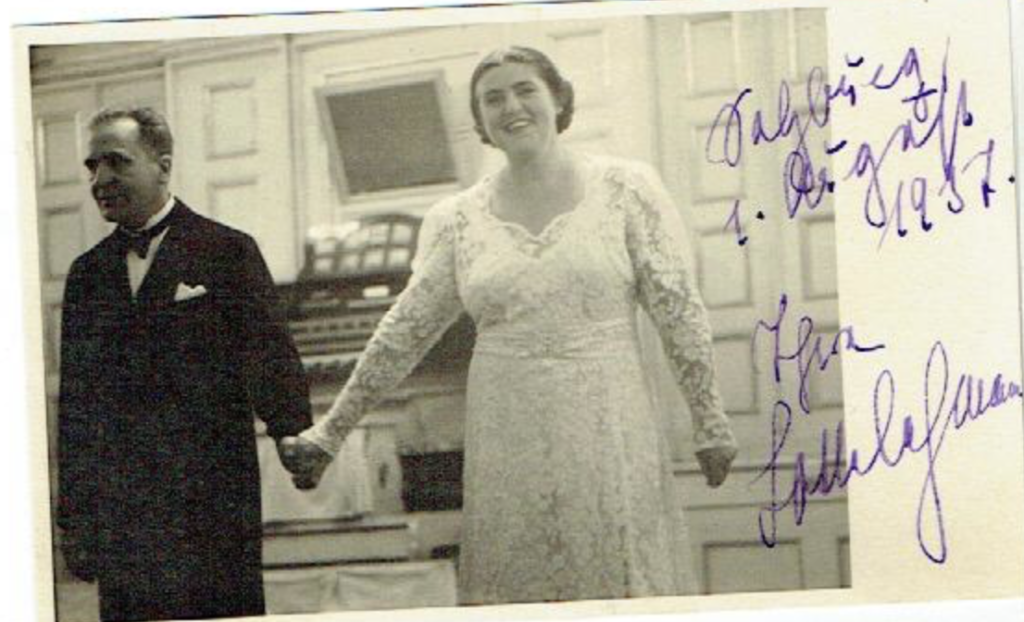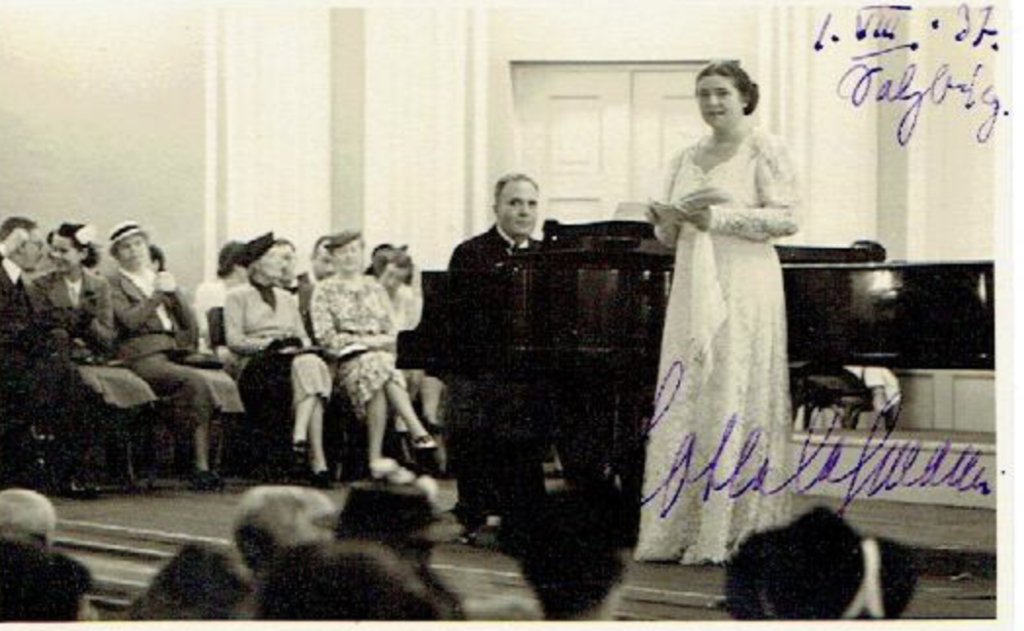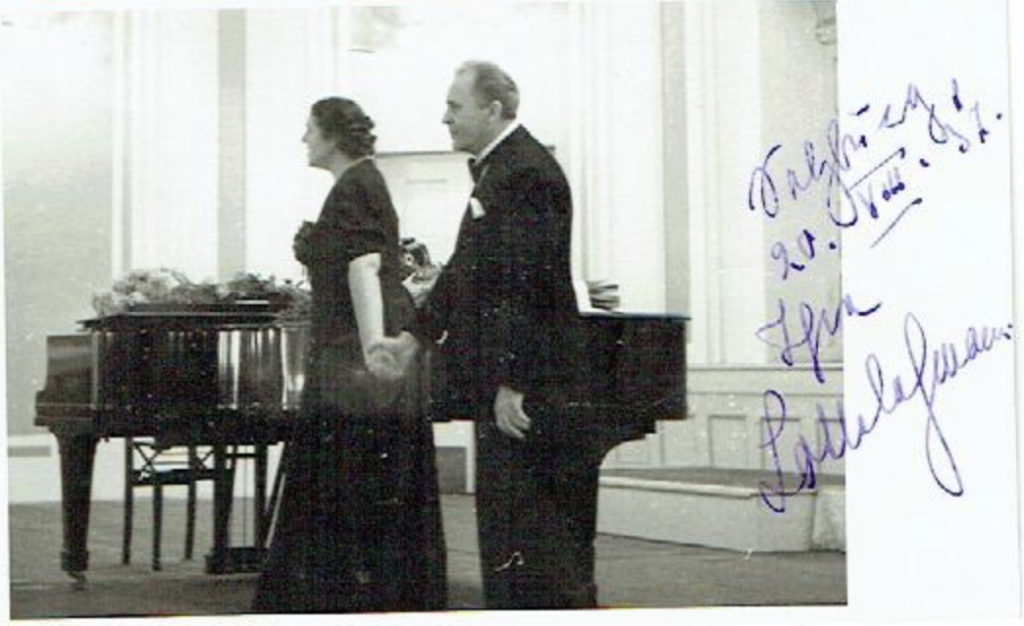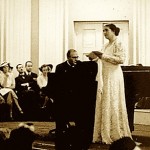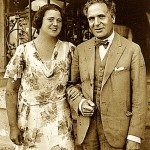 Lehmann called Bruno Walter her greatest teacher and one of her most valued friends. Listen to them performing together, in 1941, the second one in up-dated sound: Ich grolle nicht, Ich grolle nicht 2. Beaumont Glass writes that she regarded him “as one of the guiding spirits in her artistic development.” They began working together when in 1924 Covent Garden offered Lehmann a contract to sing the Marschallin in Strauss’ Der Rosenkavalier.
Lehmann called Bruno Walter her greatest teacher and one of her most valued friends. Listen to them performing together, in 1941, the second one in up-dated sound: Ich grolle nicht, Ich grolle nicht 2. Beaumont Glass writes that she regarded him “as one of the guiding spirits in her artistic development.” They began working together when in 1924 Covent Garden offered Lehmann a contract to sing the Marschallin in Strauss’ Der Rosenkavalier.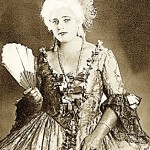 It was partly due to the fact that she wanted to sing under Walter’s baton that she signed the contract despite the fact that she’d never sung the role. In both 1925 and 1926 he accompanied her at Queens Hall and Royal Albert Hall, London, in recitals that included arias as well as songs. Lehmann wrote of this experience, “It was wonderful to make music with him. What marvelous things he told me about those songs.” He helped her tremendously then and throughout her career, both in opera and song, guiding her with the deepest respect for her gifts and at the same time demanding the highest musical levels at his command. Here’s what they had to say about each other: Lotte Lehmann on Bruno Walter. Bruno Walter on Lotte Lehmann
It was partly due to the fact that she wanted to sing under Walter’s baton that she signed the contract despite the fact that she’d never sung the role. In both 1925 and 1926 he accompanied her at Queens Hall and Royal Albert Hall, London, in recitals that included arias as well as songs. Lehmann wrote of this experience, “It was wonderful to make music with him. What marvelous things he told me about those songs.” He helped her tremendously then and throughout her career, both in opera and song, guiding her with the deepest respect for her gifts and at the same time demanding the highest musical levels at his command. Here’s what they had to say about each other: Lotte Lehmann on Bruno Walter. Bruno Walter on Lotte Lehmann
But it was in the rarified festival world of Salzburg that they made their mark on musical history.
Here is Walter Legge’s account of the Lieder recitals at the Salzburg Festivals. “In 1925, the year of the opening of what we now call ‘the old Festspielhaus,’ there were four: one each by Richard Mayr, Joseph Schwarz, a great German baritone, Lotte Schöne and a program of arias, lieder and duets by Maria Ivogün and Karl Erb…In 1926, the only lieder recital by Hans Duhan was cancelled… There were no more song recitals until 1934 when Lotte Lehmann and Bruno Walter joined forces to make a memorable occasion…. [Legge overlooked a 27 August 1933 recital]. The same artists gave one concert in both 1935 and 1936. In 1937 there were two Lehmann-Walter recitals and a concert of contemporary composers….”
Here is a listing of those historic recitals: 1933: Schubert: An die Leier, Im Abendrot, An eine Quelle, Erlkönig; Schumann: Erstes Grün, Der Nussbaum, Waldesgespräch, Aufträge; Brahms: Nicht mehr zu dir zu gehen, Wenn du nur zuweilen lächelst, Bitteres zu sagen denkst du, Botschaft, Der Salamander; and Wolf: Mignon (Kennst du das Land), Anakreons Grab, In dem Schatten meiner Locken, Der Freund.
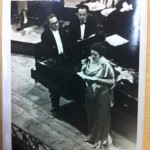
BW & LL Salzburg Festival
On the back of the program, which includes the complete texts of the poems, is an advertisement for the “just released” biography of Richard Mayr with “a foreword by Lotte Lehmann.”
1934: Beethoven: Freudvoll und leidvoll,Wonne der Wehmut,Neue Liebe, neues Leben; Schubert: Romanze aus Rosamunde,Ungeduld” (from Die schöne Müllerin); Schumann: Frauenliebe und -leben; Brahms: Ach, wende diesen Blick,Immer leiser wird mein Schlummer, Wie bist du, meine Konigin, Ständchen; Wolf: An eine Äolsharfe, Und willst du deinen Liebsten sterben sehen?, Der Knabe und das Immlein, Der Gärtner, Er ist’s!”.
Vocally and histrionically a very demanding program. And long!
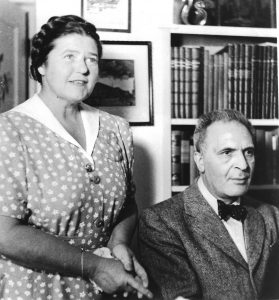 Here is a review of this recital: “Working together with Bruno Walter seems to lead the artist even beyond herself and to draw her up to unimagined heights. How those two up there on the concert platform, music-possessed, make music together—that verges on the miraculous.”
Here is a review of this recital: “Working together with Bruno Walter seems to lead the artist even beyond herself and to draw her up to unimagined heights. How those two up there on the concert platform, music-possessed, make music together—that verges on the miraculous.”
In 1935 the program included: Mozart: Abendempfindung, An Chloe, Dans un bois solitaire, Die Verschweigung; Schumann: Widmung, Geisternähe, Die Kartenlegerin, Aufträge; Duparc: L’invitation au Voyage, Extase; Moussorgsky: Improvisation (also called Fantasie), La Nuit; Berlioz: Absence, L’ile inconnue (from Nuits d’Été); Brahms: Unbewegte laue Luft, Nachtigall, Wir wandelten, Meine Liebe ist grün.
At this juncture, gentle reader, notice the unusual (for the time and place) inclusion of non-German items.
Here are the contents, in order, of their 1936 recital: Brahms: An die Nachigall, Nicht mehr zu dir zu gehen, Lerchengesang, Mondenschein, Willst du, dass ich geh’?; Mendelssohn: Der Mond, Venezianisches Gondellied, Gruss, Neue Liebe, Auf Flügeln des Gesanges; Cornelius: Komm, wir wandeln zusammen, Wiegenlied, Ein Ton; Franz: Für Musik, Im Herbst; Wolf: Benedeit die sel’ge Mutter, Anakreons Grab, Gesang Weylas, Du denkst mit einem Fädchen mich zu fangen, Er ist’s!.
Remember that this last song appeared on the 1934 program, also at its conclusion. It is a rouser. Note the sophisticated songs mixed with the chestnuts; the unknown songs (and composers) side by side with the most famous.
These are the two programs from August of 1937: On 1 August at 11:00 a.m.: Brahms: O wüsst ich doch den Weg zurück, Wir wandelten, Sonntag, O liebliche Wangen ; Schumann: Dichterliebe; Schubert: Der Lindenbaum (from Winterreise), Frühlingsglaube, Gretchen am Spinnrad; Strauss: Befreit, Freundliche Vision; Wolf: Der Gärtner, Storchenbotschaft.
Given the political climate of the time, the inclusion of Strauss Lieder with Bruno Walter at the piano was interesting at least and remarkable at best.
On 20 August, again at 11:00 a.m. in the Mozarteum: Schubert: An Sylvia, An die Musik, Der Doppelgänger (from Schwanengesang), Im Abendrot; Schumann: Dichterliebe; Brahms: Ach, wende diesen Blick, Bitteres zu Sagen denkst Du, Mainacht, Therese, O liebliche Wangen; Strauss: Befreit, Freundliche Vision, Die Georgine, Ständchen.
Notice again that Walter agreed to play Strauss songs, even though he had reasons personal and professional (and political) to avoid them. Strauss was at that time fulfilling the Nazi’s requests for music and “administration.”
In 1962, upon Bruno Walter’s death, Lehmann wrote: “He was a great teacher, a noble man, a beloved friend.”
Poem by Lotte Lehmann — “Mit Bruno Walter am Klavier…”
Es trägt sein Spiel, das sich mir tief verwebt,
Mich fort auf wunderbaren Schwingen.
Ich fühle im Zusammenklingen
Hinströmend meine Seele singen,
Die nun im Willen seiner Hände lebt
Und aufwärts schwebt zu lichten Höhen.
Vermahlt in einer Melodie—
Geführt und führend—hingerissen
Eines dem andern folgen mussen
In tiefstem Voneinanderwissen:
Geheimnis ist’s der Harmonie
Und wahres, reines Sichverstehen.
My attempt at an English translation of its sense, not a word-for-word translation:
His playing, that deeply intertwines me, carries me to wonderful floating
I feel in the sounding together that my streaming soul sings, that now lives in the will of his hands.
And it floats upwards to the bright heights.
Painted in a melody, led and leading, enthralled; forced to follow each other in the deepest understanding: the harmony is a mystery.
And truly a pure self-revelation
In a translation by Mrs. Hilde Randolph:
“Deeply moved by his playing
I am carried away on heavenly wings
I can feel my soul singing in togetherness
following the will of his hands
carried to pure heights, united by a melody
guided and guiding
spellbound, having to follow each other
it is the secret of harmony
and real true mutual understanding.”
• You can find Lehmann’s tribute to Bruno Walter (in German) at page 243 of Volume IX of Lotte Lehmann & Her Legacy.
• Frances Holden wrote down some of Lehmann’s thoughts about working with Bruno Walter. Though Holden’s handwriting can sometimes be a challenge, here’s what I have found. Holden is quoting Lehmann. “A benefit concert brought my first meeting with Bruno Walter at the piano. It was the beginning of a long series of song recitals with him in which the concert as well as rehearsals/preparation meant a source of pure joy. I have sung with eminent accompanists – but a concert [recital] with Walter was always something special. How he understood how to build up a Lied. How to change it into a drama, how to give it _____________ life without ever overstepping the boundary between the purity of the Lied (which leads into the region of dramatic opera). I have learned much from Bruno Walter, gotten much inspiration. What is almost more important to me, confirmation of my own conviction. What memories: the yearly Lieder recitals in the Salzburg Festivals. In spite of all his exhausting rehearsals [opera or orchestra concerts] he always found time for these concerts [recitals] at the Mozarteum which had become traditional __________[occurrences?]. Often we only had time for one short rehearsal. Walter always said, ‘We understand each other already. I don’t have to go through everything 2-3 times with you.’ Out of this understanding grew a unison in which the piano sang and the voice took the tone of the instruments as if it was from _______source from which the tones soared.”
